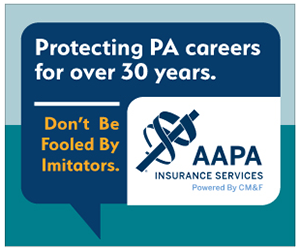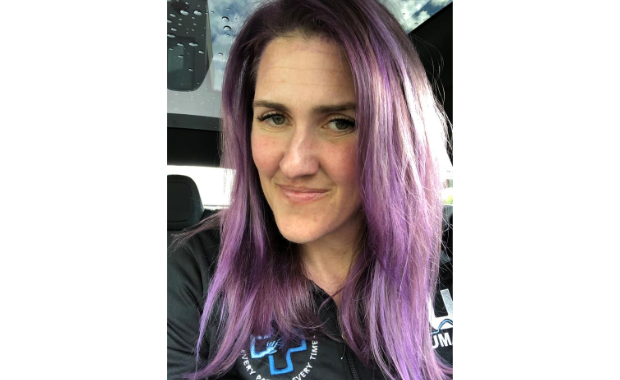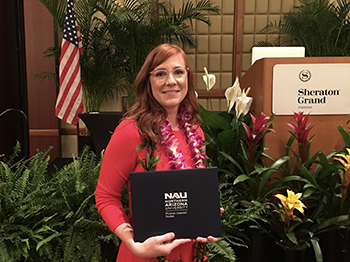Career Resources
Creating a Five-Year PA Career Plan
Creating a five-year plan for your PA career is an empowering way to take charge of your career development. Read on for the PA Career Coach’s advice on how to identify your career goals and translate those goals into an actionable plan.
Key Networking Tips for Pre-PAs
Do you want to learn from the experiences and insights of PA and PA student experts? This article includes the biggest takeaways from participants of the Pre-PA Virtual Mixer, including how to prepare for PA school and excel in your career as a PA.
Finding Your Dream Job
There is no perfect job. Career satisfaction is highly individualized. PAs can find the right job for them by carefully considering variables like work-life balance, compensation, and work setting, and prioritizing the variables that align with their passions, values, and morals.
Building Collegial Connections
Relationships are the cornerstone of PA practice. PAs can promote positive connections with colleagues through trust, respect, communication, and clarity.
Three Steps for Bouncing Back from Career Setbacks
Career disappointments and setbacks are parts of the professional journey that will happen to almost every PA at some point—and they can feel devastating. In this article I’d like to explore some ideas and approaches for responding to career setbacks so that you not only rebound but return to your practice with greater zest and confidence.
Effective Patient Communication: Background, Benefits + Best Practices
This article is an overview of effective patient communication, from background to benefits to strategies and pitfalls that the clinician should know.

Here’s How Every PA Can Play a Role in Mental Healthcare
Megan Pinder, MMS, PA-C, is an advocate for psychiatric patients both personally and professionally. She responds to questions about PAs’ role in mental health, how access, socioeconomic status, and stigma impact patient mental health, and how to advocate for mental health patients.

Health Inequities: How PAs Can Help Bridge the Care Gap
The PA Foundation’s Vital Minds podcast featured a discussion on how health disparities have been exacerbated by COVID-19, the role socioeconomic factors and insurance may play in health disparities, and how PAs – and other allies – can help bridge the care gap.

Expert Advice on Providing Trans-Affirming Healthcare
AAPA invited PAs Lauren Eisenbeis and Jo Rolls to host Huddle’s latest Ask Me session on transgender healthcare. Eisenbeis and Rolls used their expertise from years of experience to provide advice and resources for PAs to provide trans-affirming healthcare to patients.
PA Wellness
At AAPA, we’re here to support your PA well-being and fight PA burnout by ensuring your emotional, physical, social, workplace, and societal well-being.

Founding Morehouse Program Director Highlights Health Disparities for People of Color
Pangela Dawson, PhD, MSPAS, PA-C, assistant dean at Morehouse School of Medicine, talks about her career journey and how COVID-19 has highlighted health disparities in Black patients. She also offers advice for bringing more visibility and leadership opportunities to minority women.

Fact-Checked: Myths About Malpractice Insurance
AAPA has partnered with CM&F for more than 20 years to provide trusted insurance protection for PAs’ assets and careers. To help you understand the complexities of malpractice insurance, they debunk five of the most common myths they hear from PAs.

What PAs Need to Know About Malpractice Insurance
All clinically practicing PAs should carry professional liability coverage, often called malpractice insurance, during all time periods in which they practice. But the ins and outs of malpractice insurance can be confusing, so we have the official answers to nine of your most frequently asked questions.

How PAs Can Provide Compassionate Care to Survivors of Interpersonal Violence
AAPA enlisted Katherine Thompson, PA-C, a practicing PA in emergency medicine and urgent care for four years, to respond to Huddle’s Ask Me on interpersonal violence (IPV) and forensic medicine. Read her advice on how healthcare providers can identify and manage IPV survivors.

Tips for New PAs on How to Grow Your Role at Work
Are you a new PA who is ready to grow your role and increase responsibilities at work? Two members of the Early Career PA Commission, Allyson Hamacher, PA-C, and Jack Ward, PA-C, share tips for other early career PAs.

